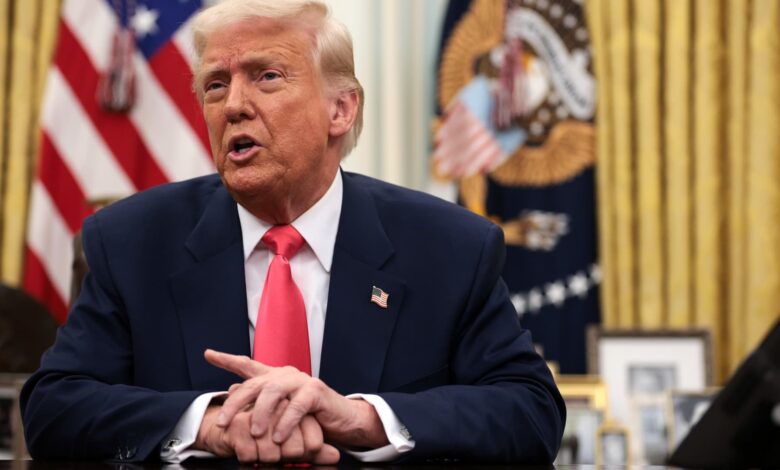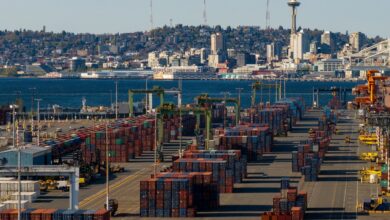Tariffs may raise much less than White House projects, economists say

President Donald Trump recently made claims that tariffs would make the U.S. “rich,” but economists are skeptical about the actual revenue that tariffs would generate. White House trade adviser Peter Navarro estimated that tariffs could raise $600 billion a year and $6 trillion over a decade, with additional revenue from auto tariffs. However, economists believe that the actual revenue generated by tariffs would be significantly lower than Navarro’s projections.
The White House is considering imposing a 20% tariff on most imports, which could potentially yield about $660 billion of annual revenue based on the total value of imports in 2024. However, economists argue that the actual revenue would be closer to $250 billion a year when accounting for the economic impacts of tariffs both domestically and internationally. Higher tariff rates could generate more revenue, but they would also have negative effects on economic growth.
One of the reasons why tariff revenue may be lower than expected is that tariffs generally lead to higher prices for consumers. This could result in lower demand for imported goods, reducing the amount of revenue generated by tariffs. Tariffs could also lead to reduced economic activity, impacting company profits, consumer spending, and overall economic growth.
Furthermore, retaliatory tariffs from other countries could further dampen the impact of U.S. tariffs on revenue generation. Non-compliance with tariff policies, exemptions for certain countries or industries, and potential relief payments to affected parties could also reduce the overall revenue from tariffs. Additionally, the temporary nature of tariffs issued by executive order means that their impact on revenue may be short-lived.
The Trump administration has indicated that tariffs will be used to offset the costs of tax cuts, including extending the 2017 tax cut law and implementing other tax breaks. If tariffs do not generate enough revenue to cover these costs, Republican lawmakers may need to find alternative sources of funding or increase the nation’s debt.
In conclusion, while the Trump administration is optimistic about the revenue potential of tariffs, economists believe that the actual impact may be far less than projected. The complex economic effects of tariffs both at home and abroad could limit the amount of revenue generated, raising questions about the feasibility of using tariffs to fund government initiatives.





